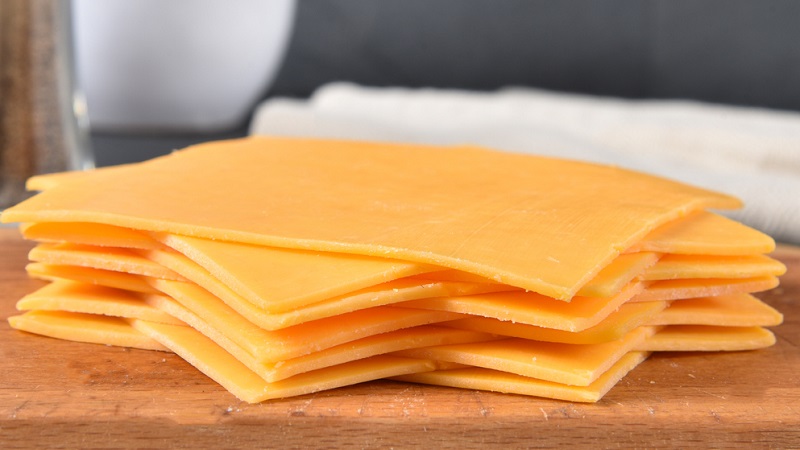In the expedition to adhere to Halal dietary guidelines, Muslims around the world carefully examine the foods they consume, including popular items like cheddar cheese. This article puts light on the question of whether cheddar cheese meets the criteria to be considered Halal. By exploring the ingredients, production process, and any relevant certifications, we aim to provide a clear answer for those seeking to maintain a Halal diet. Whether you’re a devout follower looking for guidance or simply curious about the dietary status of cheddar cheese, this article offers insights into its compatibility with Islamic dietary laws.
What is halal cheese?
Halal cheese is defined as according to Islamic dietary requirements. This implies that in order for the cheese to be considered halal, it must adhere to the Quranic guidelines. Rennet is one specific ingredient used in the production of cheese that has the potential to be haram. The majority of rennet comes from animals. There’s no guarantee that it’s halal; the maker can choose not to reveal which animal’s rennet was used at the time. Rennet is obtained from both plants and animals. You may technically consider vegetarian cheese to be halal because it isn’t created with materials derived from animal slaughter. Certain products have really obtained the certification of being halal cheese.
Insights of Cheddar Cheese
Cheddar Cheese, a globally cherished dairy product, originates from the English village of Cheddar and is renowned for its rich, varying flavors that span from mild to intensely sharp. The essence of Cheddar’s unique taste and texture is a result of the traditional cheddaring process. When it comes to dietary considerations, Cheddar Cheese can contain ingredients considered both halal and haram, depending on its preparation.
Halal versions of Cheddar are made using microbial or plant-based rennet, aligning with Islamic dietary laws. Conversely, Cheddar that utilizes animal-derived rennet from sources not compliant with halal slaughter practices falls into the haram category. This distinction is crucial for consumers adhering to halal dietary guidelines, underscoring the importance of scrutinizing ingredients and seeking halal certifications when selecting Cheddar Cheese.
Is it possible to craft Cheddar Cheese without employing Rennet?
This question takes us into the traditional cheesemaking processes, where rennet, an enzyme typically derived from animal stomachs, plays a pivotal role in coagulating milk. However, the art of cheesemaking has evolved, embracing alternatives that cater to dietary preferences and restrictions. Indeed, Cheddar Cheese can be made without rennet, utilizing plant-based or microbial coagulants instead. These substitutes effectively curdle the milk, enabling the production of Cheddar Cheese that is suitable for vegetarians and those adhering to specific dietary laws, thus broadening the accessibility of this beloved cheese without compromising its characteristic texture and flavor.
Which Cheddar Cheese are halal?
The response to this query is quite hard. To make sure the cheddar cheese is halal, thoroughly study the ingredient list and packaging. Product labels in a number of countries are beginning to provide information about the product’s halal status on their packaging.
When searching for halal cheddar cheese, read the labeling. The majority of manufacturers will indicate on their packaging whether or not they provide vegetarian (or, technically, halal, friendly) options for consumers.

In the diverse world of cheese, numerous brands have stepped up to offer Cheddar Cheese that aligns with halal and vegetarian dietary requirements. These cheeses utilize plant-based or microbial coagulants instead of traditional animal-derived rennet, making them a suitable choice for individuals observing Islamic dietary laws and vegetarians alike.
Brands like Cabot Creamery offer a selection of Cheddar that is certified halal, while other companies such as Tillamook and Kraft have lines of vegetarian-friendly Cheddar, ensuring that consumers have access to a variety of options that cater to their dietary preferences. This inclusive approach in cheesemaking not only broadens the choices available but also respects the dietary restrictions and ethical considerations of a wider audience.
Non-rennet cheddar cheese
Some Cheddar Cheese brands have embraced the production of rennet-free cheese, catering to vegetarians and those seeking alternatives to traditional cheesemaking methods. Notable among these are Cabot Creamery, which boasts a line of lacto-vegetarian-friendly cheeses, and Tillamook, offering selections made with microbial enzymes.
Additionally, brands like Kraft have also made strides in providing options without rennet, focusing on inclusivity and dietary diversity. These companies have successfully navigated the challenge of maintaining the beloved taste and texture of Cheddar Cheese while eliminating the use of animal-derived rennet, thus broadening their appeal to a more diverse consumer base seeking rennet-free cheese options.
Several brands cater to both vegan and halal dietary preferences, offering Cheddar Cheese alternatives that are free from animal products and suitable for those following halal dietary guidelines. While specific halal certifications may vary, these brands often use plant-based ingredients and microbial enzymes instead of animal-derived rennet. Some notable brands include:
Violife – Known for their wide range of vegan cheeses, Violife offers a vegan Cheddar that is popular for its flavor and melting qualities, suitable for those looking for halal options due to its plant-based composition.
Daiya – Daiya’s Cheddar Style Shreds are a hit among those seeking dairy-free, vegan, and halal-friendly cheese options. Their products are made without animal products or by-products, aligning with vegan and halal dietary requirements.
Follow Your Heart – Offering a variety of vegan cheese options, including a Vegan Gourmet Cheddar, Follow Your Heart products are made with ingredients that cater to vegan and potentially halal-conscious consumers.
Sheese – Sheese’s award-winning vegan Cheddar-style cheese is another excellent option for those seeking dairy-free and halal-compliant products. Their ingredients are carefully selected to ensure they meet vegan standards, which also align with many halal dietary considerations.
Field Roast Chao Creamery – Field Roast provides a range of plant-based cheeses, including Chao Slices in Creamy Original that can easily substitute Cheddar in many recipes. Their products are crafted to cater to vegan and potentially halal preferences.
When choosing vegan and halal cheese options, it’s essential to check the product labels for specific certifications and ingredient lists to ensure they meet your dietary requirements.
Also Read: Exploring the Delight of Halal Pizza
FAQs
Is cheddar cheese halal in Islam?
Depending on the components used to produce it, cheddar cheese can either be halal or haram.
Is there a difference in taste between halal and non-halal Cheddar Cheese?
The taste difference between halal and non-halal Cheddar Cheese is negligible. The primary distinction lies in the source of rennet and adherence to halal production standards, not in flavor. Manufacturers ensure that halal Cheddar Cheese retains the same quality and taste as its traditional counterpart.
Are there any health benefits to choosing halal Cheddar Cheese over non-halal options?
Choosing halal Cheddar Cheese aligns more with dietary restrictions than health benefits. However, some consumers prefer halal cheese for its perceived purity and ethical production methods. The health benefits would largely depend on the overall diet and consumption habits rather than the halal status of the cheese itself.
Final Thoughts
In conclusion, Cheddar Cheese can indeed be halal when specific criteria are met, particularly regarding the source of the rennet used in its production. Cheeses made with vegan or plant-sourced rennet, as opposed to traditional animal-derived rennet, align with halal dietary standards. This adaptation allows for a wider range of Cheddar Cheese options to be available and acceptable for consumption by those adhering to halal dietary laws.
As the demand for inclusive dietary options grows, many cheese producers have responded by offering halal-certified products or clearly labeling their cheeses as made with vegetarian rennet. For consumers seeking halal Cheddar Cheese, it is advisable to look for these certifications and labels to ensure that the products meet their dietary requirements.

